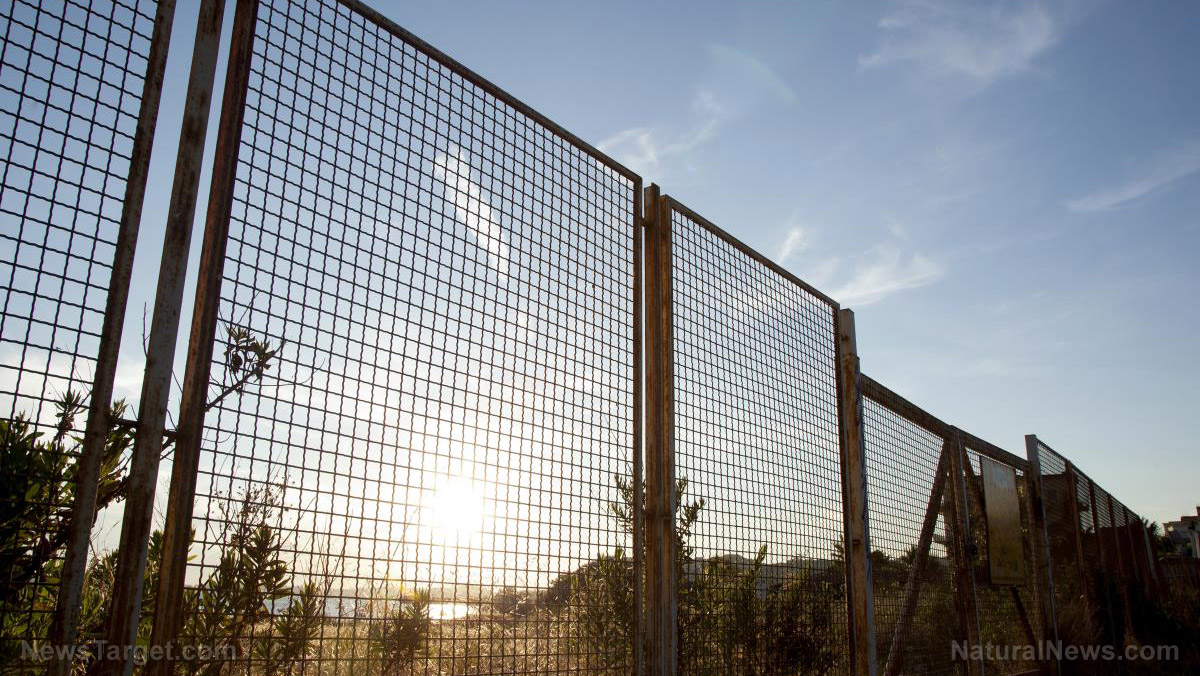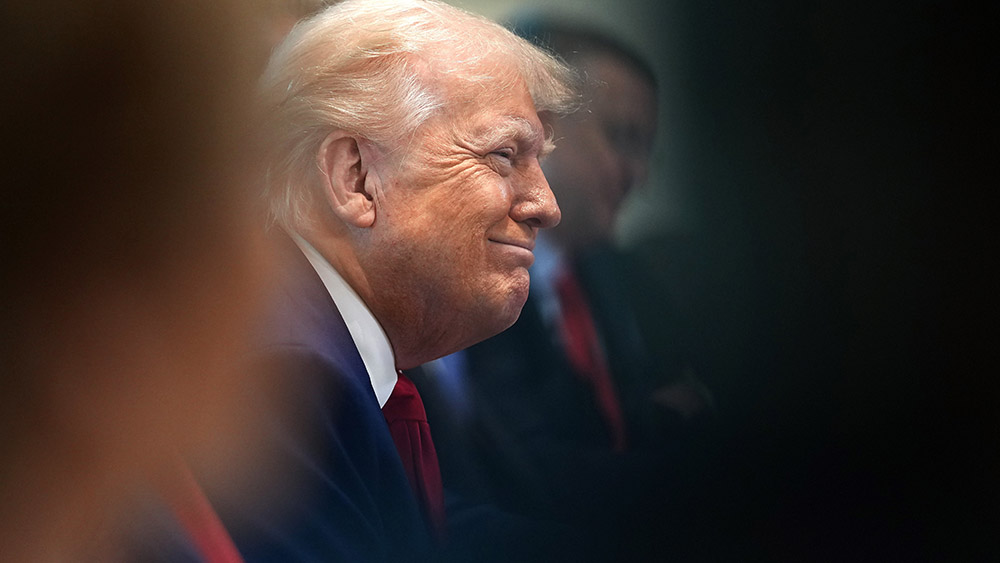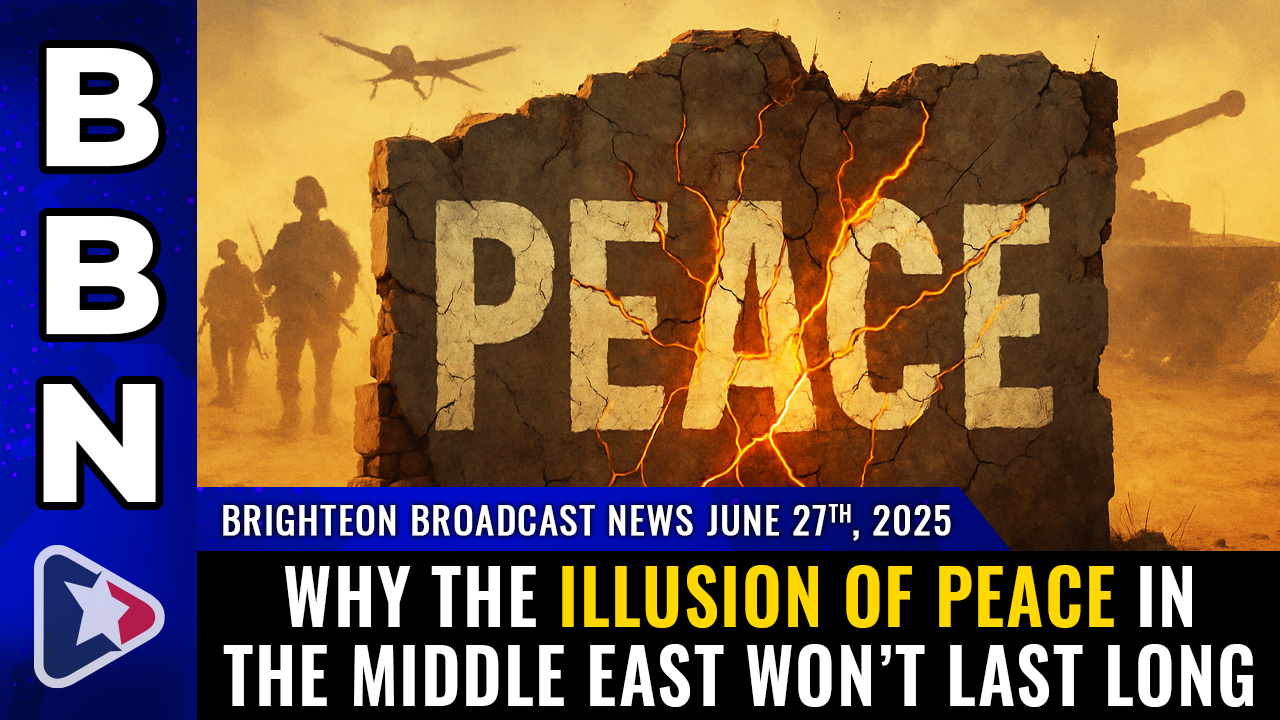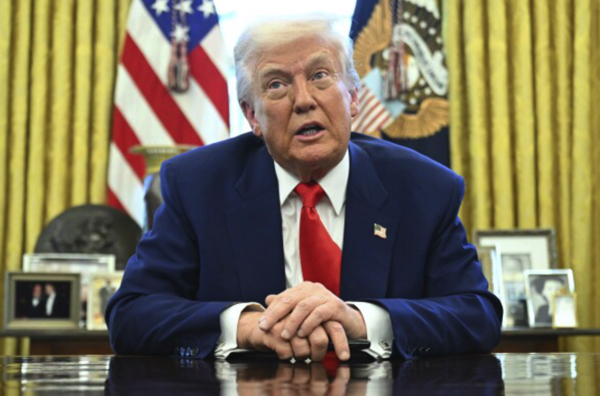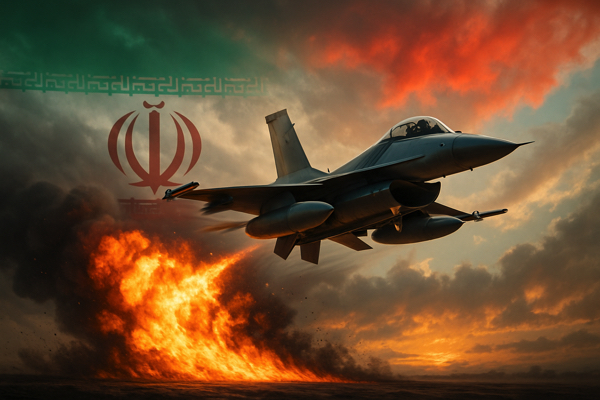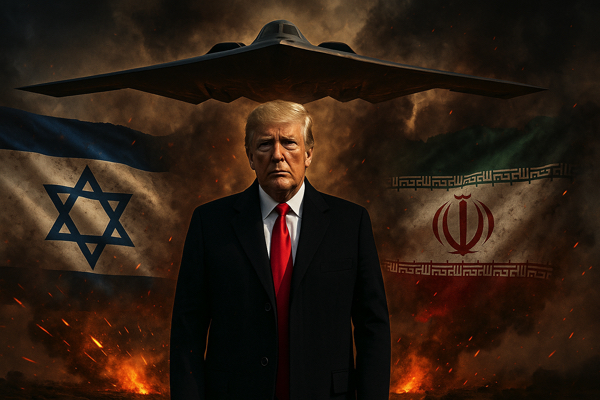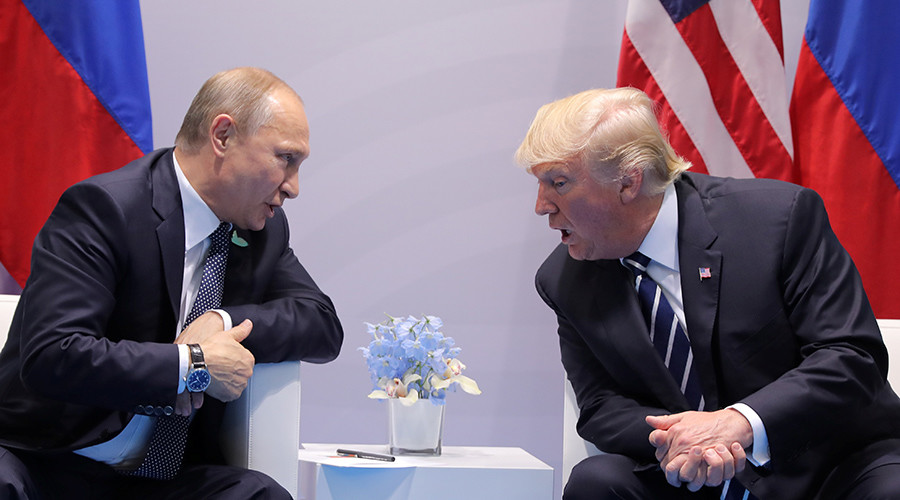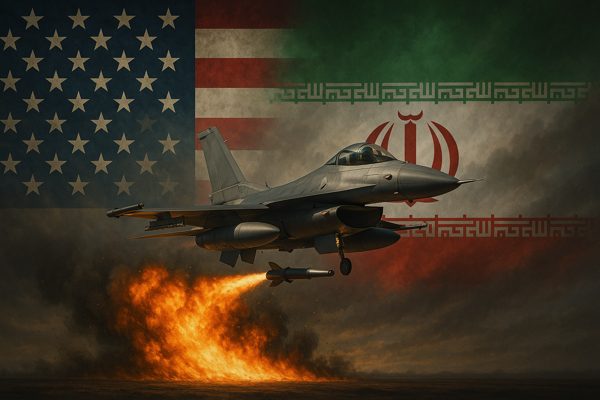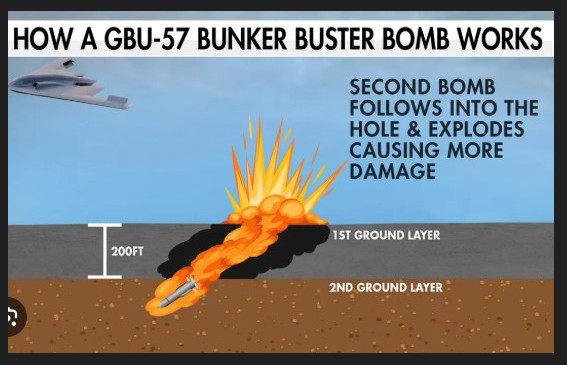Douglas Macgregor posted a wise analysis regarding the Trump Administration’s actions toward Iran
06/25/2025 / By Lance D Johnson
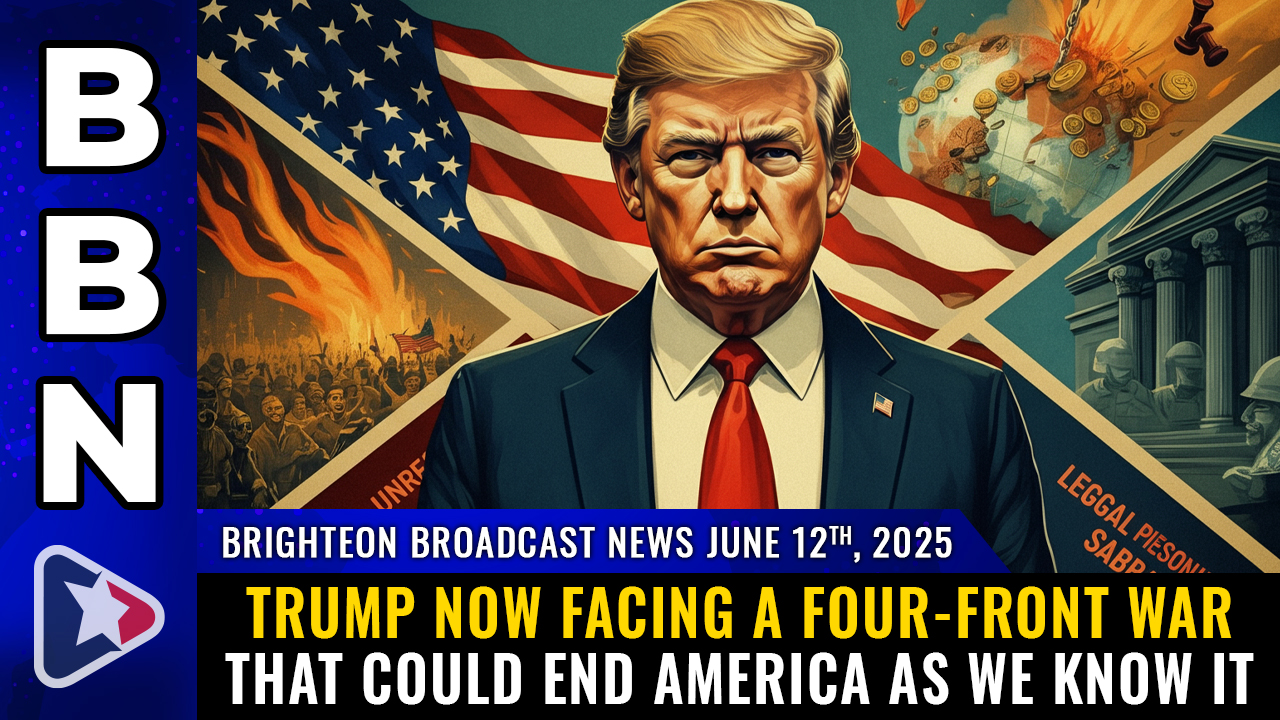
- President Trump launched airstrikes on Iranian nuclear facilities, escalating tensions in the Middle East.
- Iran vows retaliation, with experts warning of economic and military consequences.
- Russia condemns the attack, signaling a deepening alliance with Tehran.
- The Strait of Hormuz could be closed, threatening global oil supplies.
- Analysts warn of sleeper terror cells in the U.S. from unchecked border crossings.
Douglas Macgregor posted a wise analysis regarding the Trump Administration’s actions toward Iran:
On the 21st of June, a day that will live in infamy, President Trump led the American People to War with Iran. Trump’s message to Americans? Striking Iran’s three nuclear facilities is all that U.S. Forces do. Unless, of course, the Iranians have the temerity to strike back. In that case Trump promises to destroy Iran. Ridiculous.
Macgregor likened Washington’s attack in Iran to a Pearl Harbor operation.
Washington has launched its own Pearl Harbor operation. U.S. Air and Naval Power executed rehearsed strikes against a few “critical” Iranian targets. Then, American Forces pulled back, ostensibly waiting for Tehran to capitulate much like the Japanese in December 1941. Trump’s mindset echoes Israel’s thinking when it attacked Iran last week, but Iran did not collapse after Israel’s surprise attack.
A reckless gamble
On June 21, President Donald Trump ordered airstrikes against Iran’s nuclear facilities, marking a dangerous escalation in U.S. foreign policy. The operation, likened to a modern-day Pearl Harbor, targeted Fordow, Natanz, and Esfahan—key sites in Iran’s nuclear program. But unlike Japan in 1941, Iran is unlikely to capitulate. Instead, Tehran has promised a decisive response, raising fears of a prolonged conflict with global repercussions.
Trump’s decision to attack Iran mirrors Israel’s recent aggression, but initial reports suggest the strikes inflicted minimal damage. Satellite imagery shows empty facilities, with centrifuges and enriched uranium reportedly moved beforehand. The lack of immediate destruction, however, does little to ease concerns. Iran’s parliament has already voted to close the Strait of Hormuz, a critical oil passageway. If enforced, global markets could spiral into chaos, with oil prices skyrocketing overnight.
Iranian Foreign Minister Abbas Araghchi condemned the attack, stating, “Iran reserves all options to defend its sovereignty, interests, and people.” Meanwhile, Russian President Vladimir Putin denounced the strikes as “illegitimate and a violation of international law,” reinforcing Moscow’s growing alliance with Tehran.
The economic fallout and domestic threats, sleeper cells
The financial consequences of this conflict could be devastating. Approximately 20% of the world’s oil supply flows through the Strait of Hormuz. If Iran disrupts shipping—either directly or through proxy forces like the Houthis—the ripple effects will be felt worldwide. Insurance companies may refuse coverage for tankers, effectively paralyzing trade.
Historically, nations without nuclear weapons—like Iraq and Libya—have faced military intervention, while nuclear-armed states like North Korea remain untouched. Russian Prime Minister Dmitry Medvedev warned that Iran may now accelerate its nuclear ambitions, with sympathetic nations willing to supply technology.
Beyond the Middle East, the U.S. faces internal risks. With millions of undocumented migrants crossing the border since 2020, experts warn that Islamist sleeper cells could exploit the chaos. Drug cartels, already entrenched in smuggling operations, may collaborate with hostile actors against U.S. law enforcement.
As German pastor Dietrich Bonhoeffer once observed, “Against stupidity, we are defenseless.” Critics argue that Trump’s blind support for Israel’s agenda has dragged America into an unwinnable war—one that could destabilize the region for decades.
Macgregor’s analysis carries important points forward:
- The June 21st Strikes as a Turning Point – President Trump’s decision to bomb Iran’s nuclear facilities marked a reckless escalation, mirroring Israel’s failed strategy of attempting to provoke Iranian collapse through surprise attacks.
- A Hollow Victory – Initial damage assessments reveal the strikes were largely ineffective, with Iran having preemptively relocated centrifuges and personnel, rendering the bombings a symbolic rather than strategic success.
- Iran’s Strategic Patience – Unlike Japan in 1941, Tehran will not capitulate; its leadership is methodical, and its retaliation will be calculated to maximize damage while maintaining global sympathy.
- Economic Warfare Looms – Iran’s parliamentary vote to close the Strait of Hormuz signals an impending energy crisis, with oil prices set to skyrocket as tankers halt transit, crippling Western economies.
- Russia’s Role in Escalation – Moscow’s condemnation of the strikes and its vow to support Iran’s nuclear ambitions ensure that Tehran will emerge stronger, with new allies willing to defy U.S. hegemony.
- Proxy Warfare Expansion – The Houthis, already adept at striking Saudi oil infrastructure, will likely intensify attacks, while Iran’s ballistic missiles can target Gulf desalination plants, threatening water supplies for millions.
- Insurance Markets as Collateral Damage – Shipping insurers, fearing losses, may refuse coverage, effectively blockading the Strait without Iran needing to fire a single shot—paralyzing 20% of global oil flow.
- The Nuclear Precedent – Medvedev’s warning underscores a grim reality: non-nuclear states (Iraq, Libya) are bombed, while nuclear-armed ones (North Korea) are spared, incentivizing Iran to fast-track its program.
- Domestic Security Failures – With millions of undocumented migrants entering the U.S. since 2020, sleeper cells and cartel collaborations pose an internal threat, exploiting America’s distraction with foreign conflict.
- Historical Parallels of Folly – Trump’s miscalculation echoes Bonhoeffer’s warning about stupidity—blind allegiance to Israel’s agenda has locked the U.S. into an unwinnable war with catastrophic consequences.
- Iran’s Moral High Ground – Tehran’s measured response will exploit global outrage over Israel’s atrocities in Gaza and Syria, framing U.S. aggression as another act of imperialist violence.
- The Illusion of Control – Washington assumes it can dictate escalation, but Iran holds the cards—its proxies, missile arsenals, and economic leverage ensure it can strike asymmetrically and unpredictably.
- Long-Term Consequences – Even if Iran doesn’t formally close the Strait, the mere threat will trigger market panic, destabilizing industries reliant on petroleum and deepening global recession risks.
- A War of Attrition – Unlike the Houthi conflict, which the U.S. abandoned, war with Iran will be protracted, with no easy exit, draining American resources and morale for decades.
- The Inevitable Reckoning – Trump’s gamble has united adversaries (Russia, China, regional actors) against U.S. interests, ensuring that America’s decline accelerates as the world rejects its destabilizing aggression.
Sources include:
Submit a correction >>
Tagged Under:
border security, cartels, Donald Trump, economic collapse, energy crisis, geopolitics, global markets, Houthis, international law, Iran, Israel, Middle East conflict, military strikes, nuclear facilities, oil prices, Operation Midnight Hammer, retaliation, Russia, sleeper cells, Strait of Hormuz, terrorism, UN Security Council, US foreign policy, Vladimir Putin, war escalation
This article may contain statements that reflect the opinion of the author
RECENT NEWS & ARTICLES
COPYRIGHT © 2017 WHITE HOUSE NEWS

